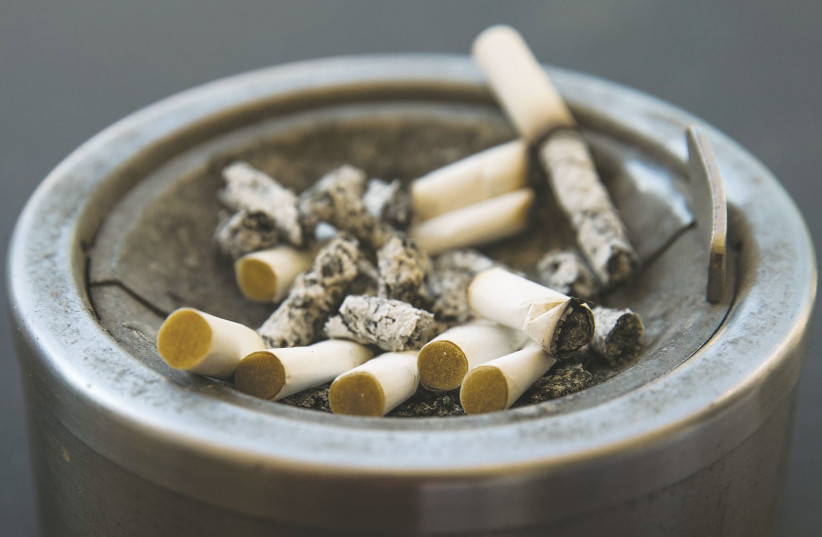Cereal and milk or toast with avocado sounds like perfect breakfast pairs but for many people, their favorite combo is coffee with a cigarette. Why?
A study from the University of Florida in Gainesville may finally have an answer.
Researchers found that certain chemical compounds in roasted coffee beans may help ease the effects of morning nicotine cravings. The study authors were able to identify two coffee compounds that appear to directly affect highly sensitive nicotine receptors in the brain. For smokers, these receptors are often more sensitive after a long night without nicotine.
Although this finding hasn’t been tested on humans, Roger Papke, a professor of pharmacology at the UF College of Medicine, says this research is an important step towards understanding how caffeine and nicotine work together.
In a press release, Papke said that many people like caffeine in the morning, but other molecules in coffee may explain why cigarette smokers need to drink it.

The team applied a stain of dark roasted coffee to a group of cells expressing a specific human nicotine receptor. The results led researchers to conclude that a specific organic chemical compound in coffee may help restore the function of the nicotine receptor that causes nicotine cravings in regular smokers.
Nicotine patch from coffee
Also, Pekah has another theory. One coffee compound, n-MP, may help curb morning nicotine cravings. He adds that he was initially intrigued by the idea that most daily smokers typically combine tobacco with coffee in the morning, and tobacco with alcohol in the evening.
Scientists extensively researched the effect of alcohol on nicotine receptors yet focused much less on the effect of coffee.
Pekah concluded that people drink coffee in the mornings because of the caffeine. But did coffee do something different for smokers? Pekah says that the team checked if other components in coffee affect the brain's nicotine receptors.
